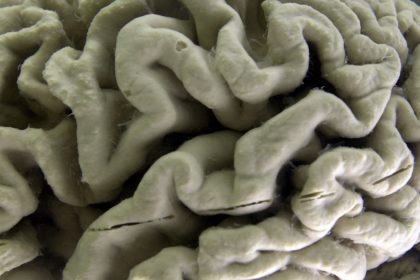HHS Steps Up Effort to Reduce Antipsychotic Med Abuse in Nursing Homes

WASHINGTON — The Department of Health and Human Services announced new steps on Wednesday aimed at reducing the inappropriate use of antipsychotic medications in nursing homes.
“No nursing home resident should be improperly diagnosed with schizophrenia or given an inappropriate antipsychotic,” said HHS Secretary Xavier Becerra in a written statement.
“The steps we are taking today will help prevent these errors and give families peace of mind,” he said.
Beginning this month, the Centers for Medicare and Medicaid Services will conduct targeted, off-site audits to determine whether nursing homes are accurately assessing and coding individuals with a schizophrenia diagnosis.
Nursing home residents erroneously diagnosed with schizophrenia are at risk of poor care and prescribed inappropriate antipsychotic medications.
Antipsychotic medications are especially dangerous among the nursing home population due to their potential devastating side effects, including death.
“We have made significant progress in decreasing the inappropriate use of antipsychotic medications in nursing homes, but more needs to be done,” said CMS Administrator Chiquita Brooks-LaSure in a press release from the agency.
“People in nursing homes deserve safe, high-quality care, and we are redoubling our oversight efforts to make sure that facilities are not prescribing unnecessary medications,” Brooks-LaSure added.
Wednesday’s action furthers the administration’s objective to improve the accuracy of the quality information that is publicly reported and the nursing home Five-Star Rating System.
The use of antipsychotic medications among nursing home residents is an indicator of nursing home quality and used in a nursing home’s Five-Star rating, however it excludes residents with schizophrenia.
If an audit identifies that a facility has a pattern of inaccurately coding residents as having schizophrenia, the facility’s Five-Star Quality Measure Rating on the Care Compare site will be negatively impacted.
For audits that reveal inaccurate coding, CMS will downgrade the facility’s Quality Measure ratings to one star, which would drop their overall star rating as well.
The agency will monitor each facility’s data to determine whether they have addressed the identified issues. After that, CMS will decide whether any downgrades should be reversed.
In a related move, HHS is also taking steps, again in partnership with the Centers for Medicare and Medicaid Services, to bring greater transparency about nursing home citations to families.
Currently, when a facility disputes a survey deficiency, that deficiency is not posted to Care Compare until the dispute process is complete. This process usually takes approximately 60 days; however, some cases can take longer.
While the number of actual deficiencies under dispute is relatively small, they can include severe instances of non-compliance such as Immediate Jeopardy citations. This level of citation occurs when the health and safety of residents could be at risk for serious injury, serious harm, serious impairment or death.
Displaying this information while it is under dispute can help consumers make more informed choices when it comes to evaluating a facility.
This new information will begin appearing on Care Compare on Jan. 25. While the citations will be publicly displayed, they will not be included in the Five-Star Quality Rating calculation until the dispute is complete.
Dan can be reached at [email protected] and at https://twitter.com/DanMcCue
























